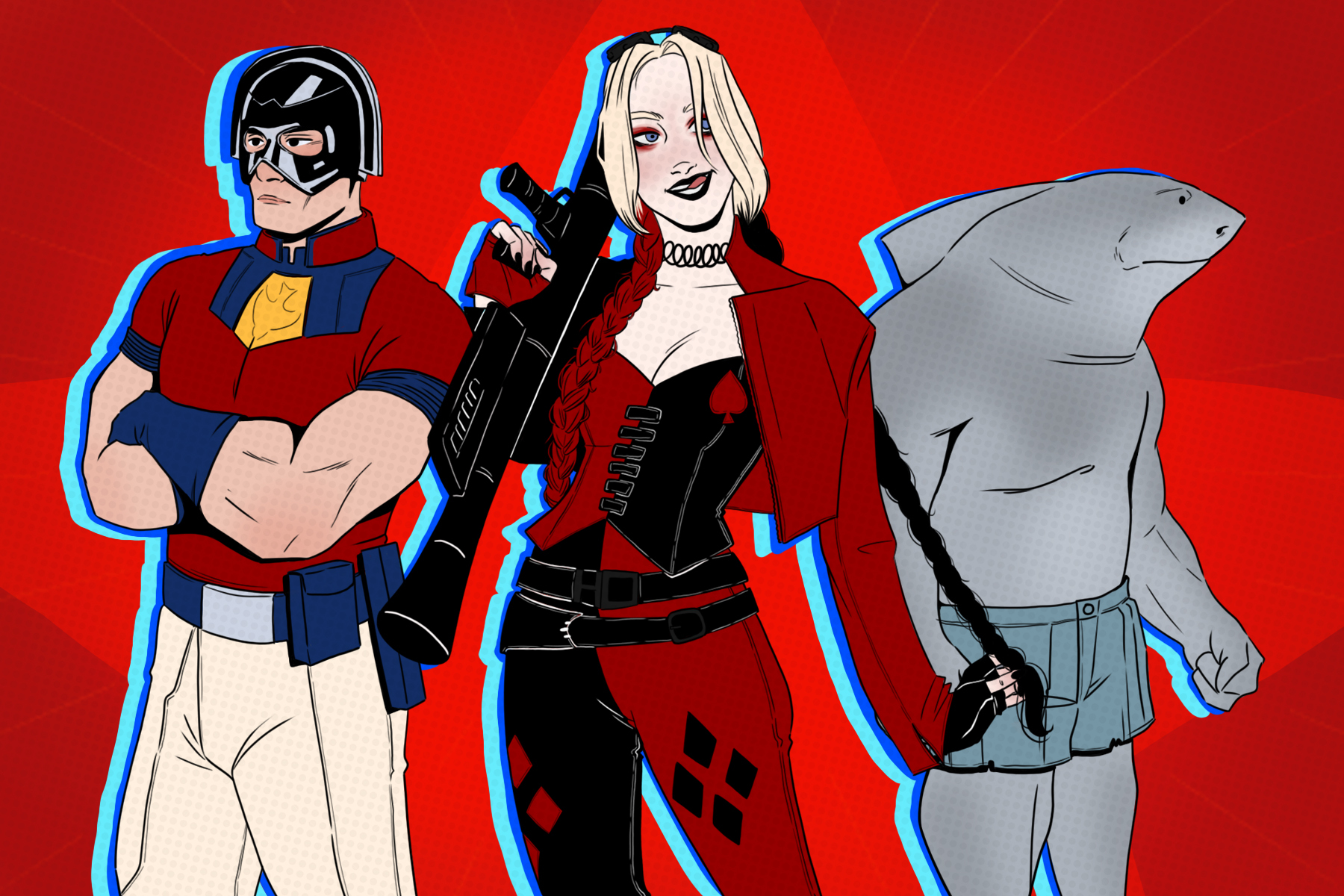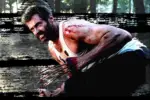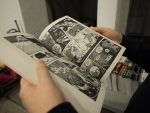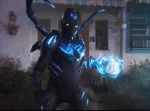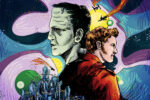After the release of the first official cast list for “The Suicide Squad,” director James Gunn gave his followers a warning — “Don’t get too attached.” After watching the film, I can assure you that he certainly meant it. If you’re going to see this movie because you’re a huge fan of one of the actors, hold your breath. Their screen time may not even reach five minutes before the ruthless Amanda Waller presses a button and blows them to bits.
The premise for “The Suicide Squad” lies within its title. Villainous inmates from the Belle Reve penitentiary are chosen by Amanda Waller (Viola Davis) to join Task Force X and complete dangerous missions for the government. If they are successful, time is reduced from their prison sentence. If they stray from the plan, they’re dead.
This time, Task Force X is sent to Corto Maltese, an island off the coast of South America, to take down an anti-American regime. The mission goes south quickly after one of the members reveals their location, leading to a gruesome bloodbath on the island. As heads explode and bodies are impaled amid a rain of never-ending bullets, it becomes clear just how expendable this squad really is. Viewers barely get to know some of the new team members before they are unceremoniously killed off.
The opening of the new R-rated feature presents a stark difference from 2016’s “Suicide Squad,” which was directed by David Ayer and rated PG-13. It’s immediately clear that the stakes are much higher in “The Suicide Squad.” While only two members of the squad die in Ayer’s film, characters drop like flies in a grotesque fashion from the very beginning of Gunn’s.
While it’s a given that graphic violence comes hand in hand with a more mature rating, the abundance of bloodshed is still striking. Brains, guts and gore litter many scenes, a sight that may be shocking to those more accustomed to family-oriented superhero films. If anything, “The Suicide Squad” is more akin to Amazon Prime’s “The Boys” than it is to other DC Extended Universe (DCEU) pieces such as “Wonder Woman” or “Shazam.”
Only four characters from the 2016 film — Harley Quinn, Captain Boomerang, Colonel Rick Flag and Amanda Waller — appear in “The Suicide Squad.” Fans who have seen Ayer’s “Suicide Squad” will note the already formed connections between those individuals; however, those who haven’t should still be able to easily pick up tidbits from the previous film, as many are referenced during the new installment.
For this film, Gunn opted to recruit more uncommon characters from DC Comics for the squad, such as King Shark (Sylvester Stallone), Polka-Dot Man (David Dastmalchian), Weasel (Sean Gunn) and Mongal (Mayling Ng).
“Each of these superheroes came from a different genre. Bloodsport is sort of a grim, dark thing and Polka-Dot Man is from some goofy old cartoon and Peacemaker’s from a dumb 70s TV show and Ratcatcher is from almost like a ‘Saw’ type of movie or something,” said Gunn to The Associated Press. “And they’re all coming together. The actors were like that, too. They all have their own styles and different ways of going about it. And it really is my job as a director to make them all on the same page.”
Gunn handles this ensemble cast with ease, likely thanks to his previous experience working in the Marvel Cinematic Universe (MCU) on the “Guardians of the Galaxy” film series. Gunn — the sole credited writer of the project — finds a balance between action, emotion and comedy to round out his quirky cast, which serves to keep “The Suicide Squad” a fun viewing experience despite the dark themes and near-constant violence.
The film’s more emotional beats make it easier to connect with new additions to the team, including Bloodsport (Idris Elba) and Ratcatcher 2 (Daniela Melchior), both of whom wrestle with complicated family relationships. At the same time, many of the more colorful, action-packed sequences star Margot Robbie’s Harley Quinn, a character that audiences are more familiar with from previous entries in the DCEU.
Comedy, however, is the film’s strongest asset, as it makes these villainous characters more palatable. Humor gives the viewers a reason to root for them on their journey, no matter how high their body count grows. Funny quips from King Shark, Blackguard and Peacemaker act to ease the tension in more serious moments, bringing a much-needed levity to the darkness.
“We’re a multi-protagonist film; that in itself is difficult. My rule was, there are no rules except keep it entertaining, keep it fun, take risks, and don’t push the audience away,” said Gunn to Complex Networks. “Anything that’s outrageous or over the top isn’t about saying, ‘Hey, look how freaking cool [or] edgy we are,’ it’s about saying, ‘Come and enjoy this with us, we are in this with you, let’s have a blast together and let’s be emotionally moved together and let’s have fun together.’”
“The Suicide Squad” is chock-full of plot twists and turns. Gunn opts at several points to abruptly bring the viewer back to an earlier scene right in the middle of an intense moment, keeping them guessing as to what will happen next. These surprising cuts keep viewers tense as the action is broken, letting them wait in suspense.
Scene transitions are also made through clever inclusions of text, with messages spelled out in fallen twigs in the sand, blood in the water or carved into the dirt along the squad’s path. These elaborate set pieces not only help to guide viewers but also keep them engaged as the plot moves forward (and backward) through time.
As a piece that stands strongly on its own as well as in connection to other DC Comics properties, “The Suicide Squad” is a win for the DCEU. While the DCEU has become more of a mixed bag tonally in comparison to the MCU, it’s clearly finding its footing in R-rated entries such as “Birds of Prey” and “The Suicide Squad.”
“The film version of the DC universe, I actually think they’re a lot like the comics,” Robbie told Entertainment Weekly. “You pick up one comic and something’s happening and then you pick up the next comic and maybe that character’s not alive, maybe that character’s not with that person, maybe that character looks completely different. Each movie is its own sort of thing, and I think that works in the comic book world, and I think that works in the DC film world as well.”
Robbie’s musing is correct — the DCEU, no matter how fractured, works better with its director-driven vehicles. “The Suicide Squad” is a step in the right direction, one that future films will hopefully follow in suit.
While no sequels to “The Suicide Squad” have been announced yet, a Peacemaker series starring Cena is set to be released in January 2022 on HBO Max. Thanks to stellar reviews from both fans and critics, however, the Suicide Squad is likely to be dying to save the world again sometime soon.


